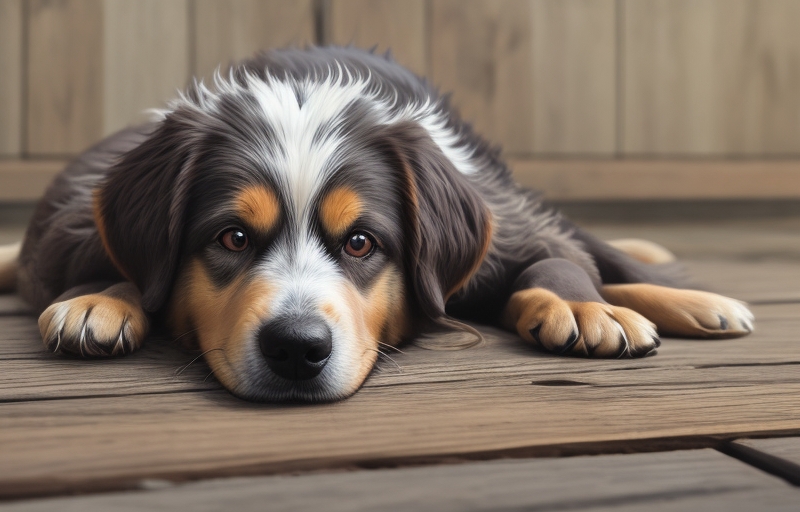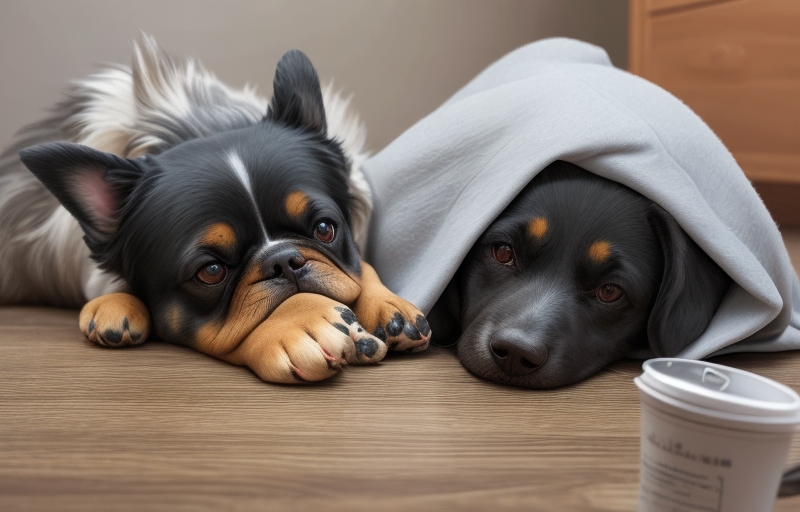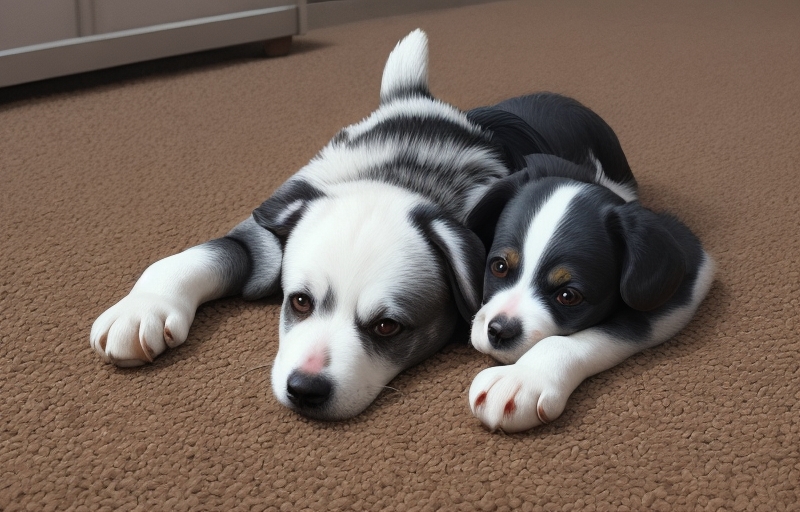Learn about caffeine poisoning in dogs, including signs, causes, treatment options, and prevention strategies. Discover how to keep your furry friend safe from accidental ingestion of caffeine-containing products.
Introduction:
Caffeine poisoning in dogs is a serious and potentially life-threatening condition that can occur when dogs ingest caffeine-containing substances. While many pet owners are aware of the dangers of certain foods for dogs, such as chocolate, they may not be as vigilant when it comes to caffeine-containing items. This article will explore the signs of caffeine poisoning in dogs, the reasons behind it, treatment options, and strategies for prevention.
Reasons for Caffeine Poisoning in Dogs:

Ingesting Coffee Grounds or Beans:
Dogs may be attracted to the aroma of coffee grounds or beans and may ingest them if left unattended. Coffee grounds and beans contain concentrated caffeine, leading to toxicity if consumed in sufficient quantities.
Consuming Caffeinated Beverages:
Dogs may accidentally ingest caffeinated beverages like coffee or tea, especially if cups are left within their reach. Even small amounts of these beverages can pose a risk due to their caffeine content.
Medications Containing Caffeine:
Some medications, particularly over-the-counter drugs, and certain weight loss supplements, may contain caffeine. Dogs can inadvertently consume these medications, leading to caffeine poisoning.
Access to Chocolate:
Chocolate contains both caffeine and theobromine, compounds that can be toxic to dogs. Dark chocolate and baking chocolate have higher concentrations, and even small amounts can contribute to caffeine poisoning in dogs.
Energy Drinks and Supplements:
Dogs may have access to energy drinks or supplements that contain caffeine. These products often have higher caffeine concentrations than coffee or tea, making them particularly dangerous if ingested by dogs.
Unintentional Sharing by Owners:
Well-meaning owners may unknowingly share food items containing caffeine with their dogs. Dogs should not be given caffeinated treats or any food meant for human consumption without ensuring it is safe for them.
Curiosity and Exploration:
Dogs are naturally curious, and their exploration may lead them to find and ingest items containing caffeine. This can include items such as discarded coffee cups, energy bar wrappers, or even caffeine-containing gum.
Unsupervised Access to Caffeine Sources:
Dogs left unsupervised in areas where caffeine-containing products are present may be more likely to ingest them. This includes countertops, tables, or garbage bins where remnants of coffee, tea, or chocolate may be accessible.
Signs of Caffeine Poisoning in Dogs:

Identifying the signs of caffeine poisoning in dogs is crucial for prompt intervention. Common symptoms include restlessness, increased heart rate, tremors, vomiting, diarrhea, and elevated body temperature. In severe cases, dogs may experience seizures or collapse. Pet owners need to recognize these signs and seek immediate veterinary attention if they suspect their dog has ingested caffeine.
Treatment Options for Caffeine Poisoning in Dogs:

Swift action is crucial when treating caffeine poisoning in dogs. If a pet owner suspects their dog has ingested caffeine, they should contact their veterinarian immediately. Treatment may involve inducing vomiting to remove the ingested caffeine from the system, administering activated charcoal to absorb the toxin, and providing supportive care such as intravenous fluids to maintain hydration.
In severe cases, where the dog is experiencing seizures or cardiac issues, additional interventions may be necessary. Veterinary professionals may administer medications to control seizures or manage cardiac symptoms. The success of treatment depends on the promptness of intervention and the severity of the poisoning.
Prevention Strategies:
Preventing caffeine poisoning in dogs involves awareness and proactive measures by pet owners. Here are some key strategies:
Secure Caffeine-Containing Products:
Keep all caffeinated products out of reach of your dog. This includes coffee grounds, tea bags, chocolate, energy drinks, and medications containing caffeine. Store them in cabinets or areas inaccessible to your pet.
Educate Family and Visitors:
Ensure that everyone in your household is aware of the dangers of caffeine for dogs. Visitors should also be informed, especially if they are bringing food or drinks into the home.
Dispose of Waste Properly:
Dogs are notorious for getting into the trash. Dispose of coffee grounds, tea bags, and other potential sources of caffeine securely to prevent your dog from scavenging.
Monitor Medications:
Be cautious with medications that may contain caffeine. Always follow your veterinarian’s instructions for administering medications to your dog, and store them in a location where your pet cannot access them.
Final Thoughts
Remember, the best way to protect your dog from caffeine poisoning is through awareness, prevention, and prompt veterinary care in case of accidental ingestion.
Read Also: IS CAFFEINE POISONOUS TO DOGS?
FAQs:
Can small amounts of caffeine harm my dog?
While the sensitivity varies among dogs, even small amounts of caffeine can be harmful. It’s best to avoid giving any caffeine-containing products to your dog.
How much caffeine is dangerous for dogs?
The toxic dose of caffeine varies depending on the dog’s size and breed. However, it’s generally recommended to keep all caffeine-containing items away from pets.
Are certain dog breeds more susceptible to caffeine poisoning?
While sensitivity can vary, all dogs are generally at risk of caffeine poisoning. Small breeds may be more susceptible due to their size.
What should I do if my dog ingests caffeine?
Contact your veterinarian immediately. If possible, provide information on the type and amount of caffeine ingested. Do not attempt to treat your dog at home without professional guidance.
